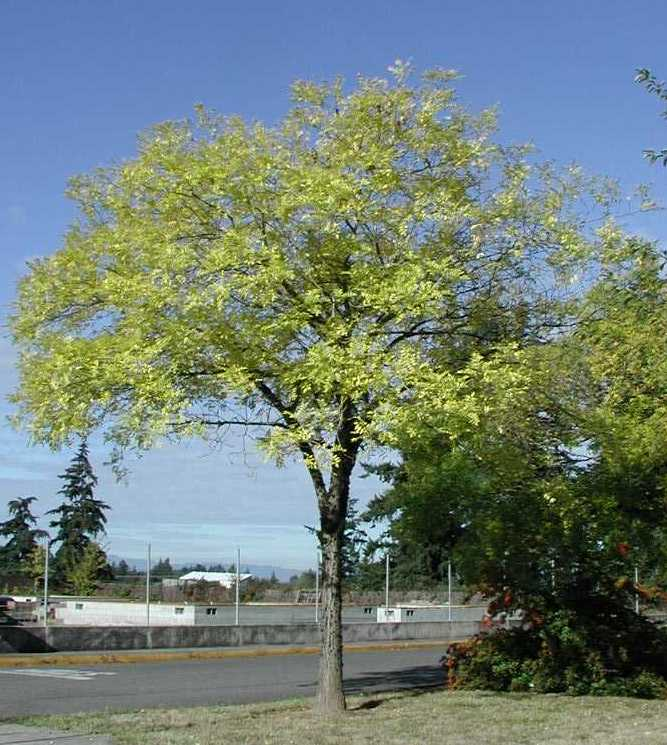| Botanical Name: Sophora japonica | |
| Common Name: Japanese Pagoda Tree |

-
Anatomy
-
Culture
-
Design
Plant Type
Tree
Height Range
25-40', 40-60'
Flower Color
White
Flower Season
Summer
Leaf Color
Green, Dark Green
Bark Color
Green, Grey
Fruit Color
Brown, Green
Fruit Season
Fall, Persistent
Sun
Full, Half
Water
Medium
Growth Rate
Moderate
Soil Type
Sandy, Clay, Loam, Rocky, Unparticular
Soil Condition
Average, Rich, Poor, Well-drained
Soil pH
Neutral, Basic
Adverse Factors
Messy
Design Styles
Japanese, Ranch, Woodland
Accenting Features
Fall Color, Silhouette, Specimen
Seasonal Interest
Winter, Summer, Fall
Location Uses
Background, Shrub Border, Patio
Special Uses
Screen, Shade Tree
Attracts Wildlife
n/a
Information by: Stephanie Duer
Photographer: Susan Frommer/Engstrom
Photographer: Susan Frommer/Engstrom
-
Description
-
Notes
Japanese Pagoda tree is a deciduous tree that grows to 30 to 50 feet tall, with a rounded crown nearly as wide. The young bark is pale gray, becoming furrowed into fibrous, interlaced, scaly ridges. Leaves are bright green, pinnate, and fern-like, with a yellow fall color. In the late summer, upright panicles of lovely, pea-like white, slightly fragrant flowers are produced at the ends of branches. Flowers are followed by bean-like pods that persist well into winter. A lovely shade tree.
Grow in full sun to part shade and well drained soil. Prefers sandy-loam or clay loam soils. Once established, it is tolerant of heat and some drought. Tolerant of pollution. Also known as Chinese Scholar Tree.